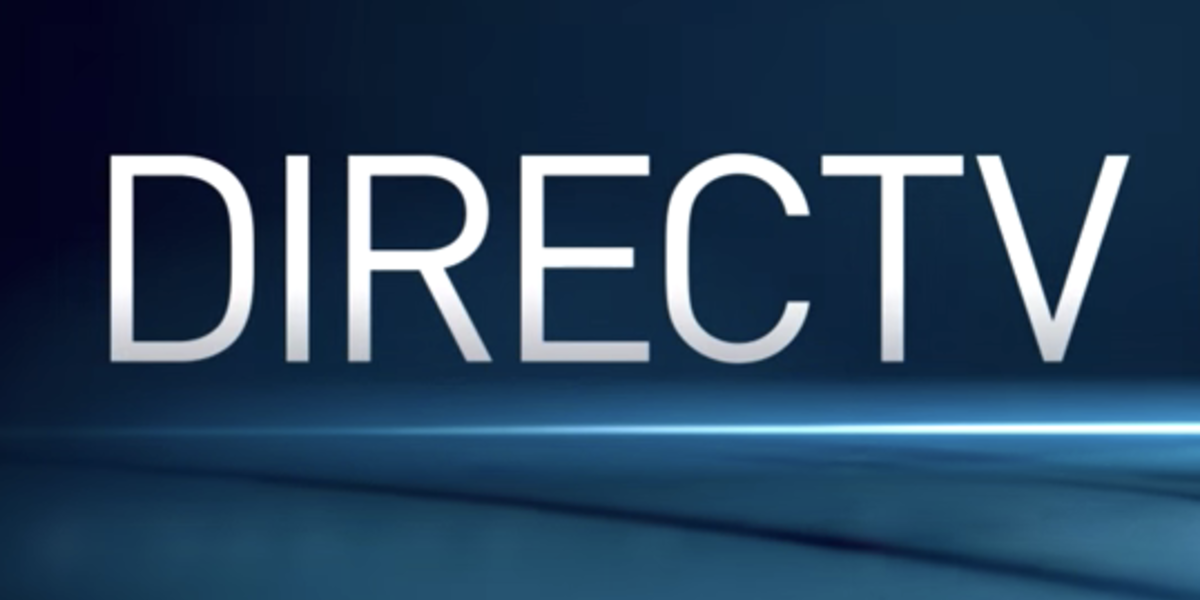Even AT&T Is Saying DirecTV Isn't Such A Big Deal Anymore

DirecTV has been a player in the television game going back to 1994 by giving customers the chance to get more channels and a clearer signal via a satellite dish. Now, however, the end may be nigh for DirecTV. AT&T, which bought DirecTV back in 2015, is moving in a different direction in delivering entertainment without a dish.
AT&T has launched its own streaming service, called AT&T TV. The service requires just a set top from AT&T, is offered at the same prices as DirecTV, and offers similar programming packages, although there are some differences. AT&T president John Stankey revealed at the Morgan Stanley Technology, Media & Telecom Conference that the company never really saw DirecTV as the future, saying this (via TV Answer Man):
I think, back in July of 2015, after we closed the DIRECTV transaction, we (said) that at that point in time that we didn’t see satellite delivery as necessarily a growth vehicle for entertainment moving forward. We like the DIRECTV customer base, thought it was attractive. But we felt like the march needed to be to delivering entertainment over software. And shortly after that period of time, we made it clear that we would be developing a software platform that would ultimately not only take our satellite base and offer them a more updated product, but be the replacement for the U-verse space that was already in service and give them the next generation of software-driven TV.
The plan has apparently always been to shift the focus away from DirecTV and satellite to an AT&T streaming service driven by software, even if AT&T TV was still years away from its March 2020 national launch back in 2015. It’s not altogether surprising, given the exodus toward streaming over cable and satellite packages in recent years, and cord-cutters may be the future.
That’s not to say that DirecTV is going to disappear altogether. DirecTV originally launched in 1994 to offer television packages in rural areas that weren’t covered by cable. Subsequent years saw DirecTV expand to more urban areas.
The downside was that DirecTV required a two-year contract and equipment rental, whereas streaming services can generally be handled on a monthly basis and equipment -- if any is necessary -- can be purchased at a relatively low cost. AT&T president John Stankey went on to explain that while DirecTV isn’t going away, it won’t get the primary AT&T push:
We will continue to offer satellite and DIRECTV where it has a rightful place in the market, places where cable broadband is not prevalent, oftentimes, more rural or less dense suburban areas. We’ll continue to offer it for customers on a stand-alone basis, who find its superior content offering to be something that they wish to have. But in terms of our marketing muscle and our momentum in the market, it will be about software-driven pay TV packages.
So, if you’re a rural customer who relies on DirecTV to get your TV, you’re not out of luck. That said, if you’re looking into AT&T TV, you won’t have access to everything you might want from a streaming service. According to USA Today, AT&T doesn’t offer Amazon Prime, Hulu, or Apple TV+. While that does mean premium services like Disney+, Netflix, YouTube TV, Showtime, and HBO Max will be available for an additional fee, there are some major gaps.
What’s next for DirecTV and AT&T TV? The streaming game can change quickly, and more services are on the way on top of the existing market. Still, the future looks a lot brighter for streaming rather than a resurgence for satellite. If you’re in the market for some new viewing options however you get your television, check out our 2020 midseason premiere schedule and our 2020 Netflix premiere rundown.
Your Daily Blend of Entertainment News

Laura turned a lifelong love of television into a valid reason to write and think about TV on a daily basis. She's not a doctor, lawyer, or detective, but watches a lot of them in primetime. CinemaBlend's resident expert and interviewer for One Chicago, the galaxy far, far away, and a variety of other primetime television. Will not time travel and can cite multiple TV shows to explain why. She does, however, want to believe that she can sneak references to The X-Files into daily conversation (and author bios).
